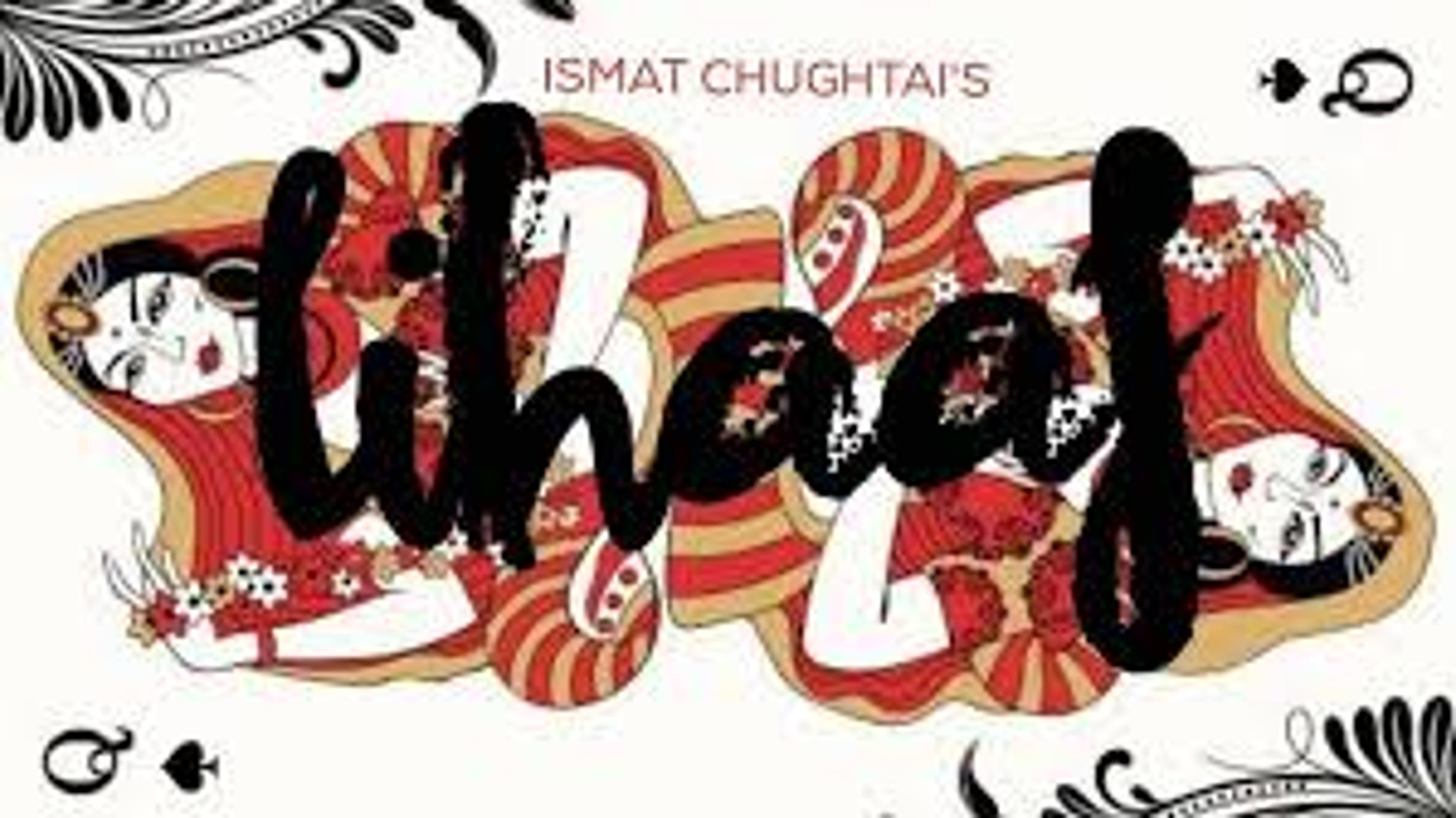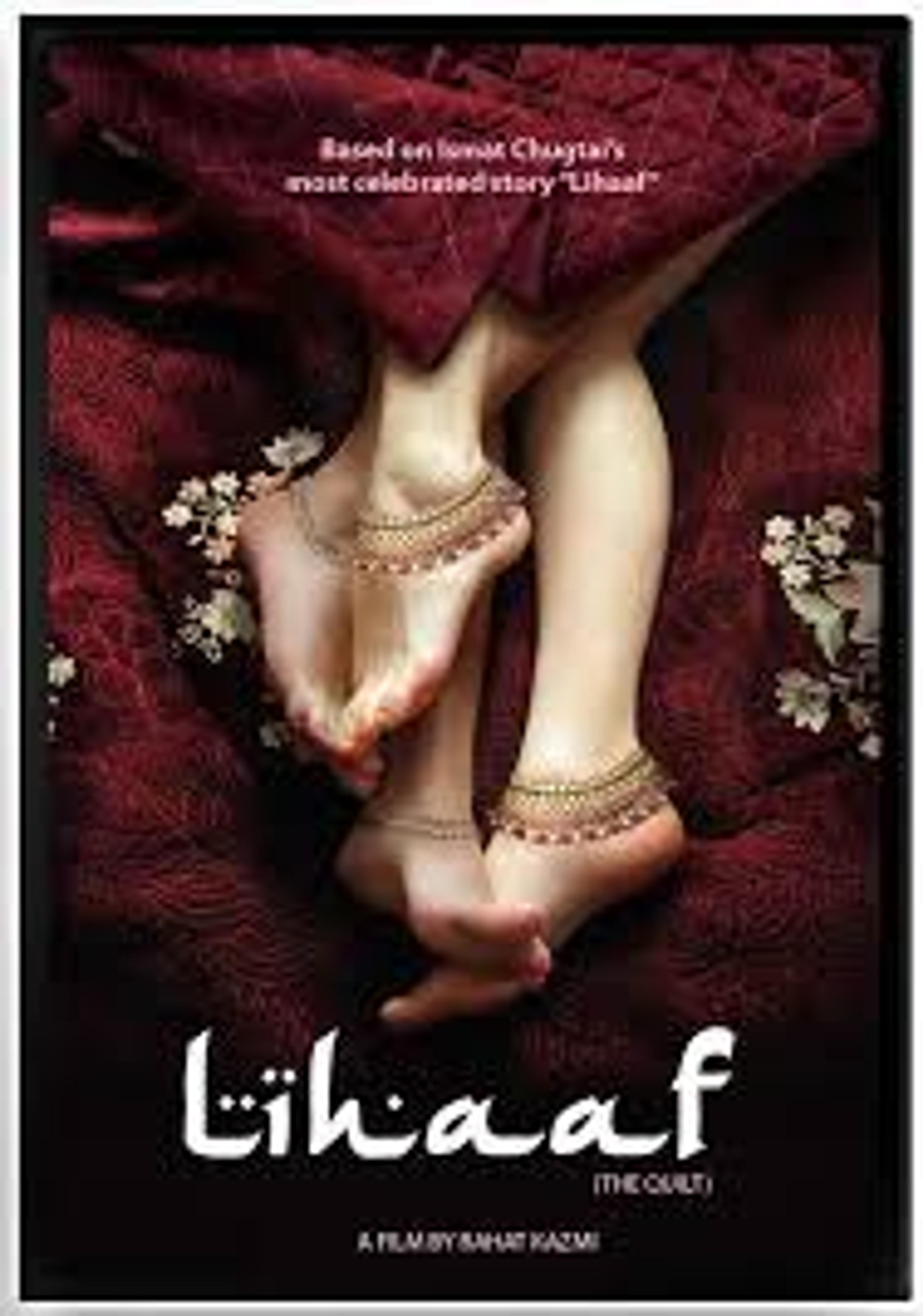Ismat Chugtai’s Lihaaf – Prejudices and The Other Side of Abuse
Rutba Iqbal
Published
Lihaaf – an expose of same sex relationship in a Muslim household. A story that breaks away from the traditional role of women, explores homoerotic themes and at the same time shadows abuse and prejudices within its layers.
“Lihaaf” is a 1942 Urdu short story written by Ismat Chugtai. Ismat Chugtai was considered a progressive writer, as she wrote about the social issues of her time and inequalities that plagued the society. Her interpretation of the Progressive Writers Movement was hinged on humanism and social awareness which reflects highly in her work, especially Lihaaf. She wrote extensively on themes like female sexuality, middle class gentility, and class conflict. The Quilt brought her to the forefront, bringing her a lot of notoriety.

This pre-independence story deals with the suffocating life of a wife in a feudal society. It also shows women snatching back their agency in a male dominated society.
Begum Jan is young and poor when she is married to the much older and richer Nawab. Their marriage is a marriage of convenience, a lie. With the inattentive Nawab as husband, Begum Jan turns to her house help, Rabbo, for fulfilling her sexual desires. Women’s sexual desires were already not talked about in the pre-independence era, same sex relations were an even bigger taboo. Chugtai herself was not very familiar with homosexuality when she wrote the story, so it feels like some of her own prejudices are reflected through the course of the story.
Begum Jan, married to a Nawab, who is also hinted to be a homosexual, becomes a mere possession with no control of her own. The only window left for her to explore sexual desires was with Rabbu. Same sex relationship becomes the last resort for Begum Jan as Nawab would not attend to her desires, so it again does not normalize Begum Jan’s sexuality but is rather a subversion from the normal; due to her extraordinary situation, that is, an absent husband. Begum’s desires do not look normal as they thrive in the absence of fulfillment through supposed normal course, that is heterosexual, legitimate means.
The power dynamics at play are diverse. There is a difference of class between the two lovers, Rabbu and Begum Jan, as they both belong to different strata of society, which is manifested in the sexual dominance of Rabbu by Begum Jan. The most interesting power play is between the young girl and Begum Jan. Begum Jan here is her caregiver and has tremendous power over her. What is interesting and scary is that no one talks of the sexual assault of the young girl which arises from this power difference. As one reads the lines in which Begum Jan forcibly holds the girl and satiates her passion by rubbing against her, one is left in a conundrum. Was that abuse?

Even after several discourses about Lihaaf, very less has been talked about what that little girl goes through. Is child abuse so subtle that it gets missed even by the eyes of keen readers? This reflects the very nature of child abuse, where children have no agency whatsoever, and are left questioning themselves about the nature of the incident. The girl in the story herself cannot understand what happened to her because Begum Jan is a supposed locus of security and love. Sexual abuse manifests in many ways, and in that moment, Begum Jan driven by her frustrations and lust, takes away the girl’s power over her own body. The question is not about whether she performed a sexual act with the girl, but that feeling of violation and uncomfortableness experienced by the child should take the centre. Begum Jan, a grown adult woman, conscious of what her bare fingers were doing to the girl, chose to do it anyway. In a way Begum Jan takes the control from the girl just like the patriarchal, imperialistic society took from her.
Lihaaf may be celebrated as a feminist text, but Begum Jan by no means is the hero of the story. She transforms into a sexual predator, misusing the little power she has in her space, thus in a way becoming what she resisted in the first place.
Rutba Iqbal is a student pursuing English Honors from Jamia Millia Islamia.
edited by: Nuzhat Khan
Disclaimer: The opinions expressed in this publication are those of the author. They do not purport to reflect the opinions or views of The Jamia Review or its members.




